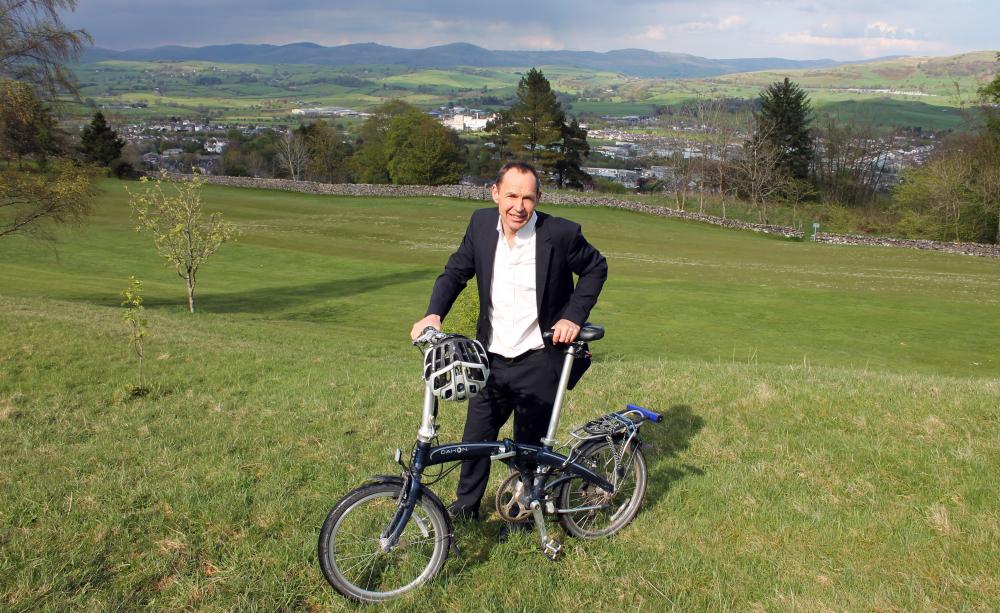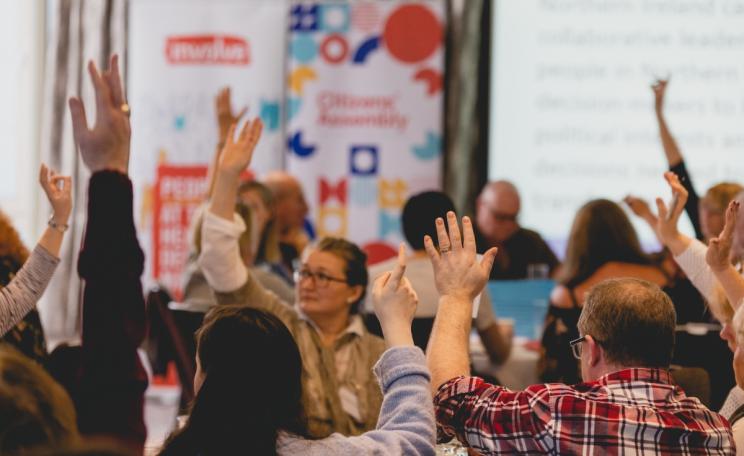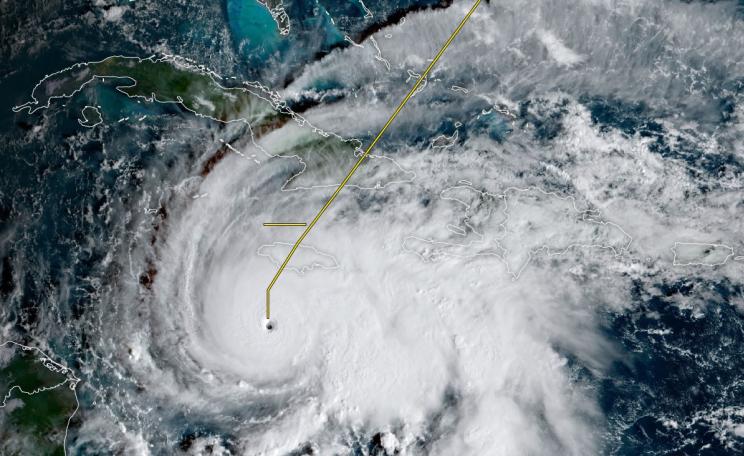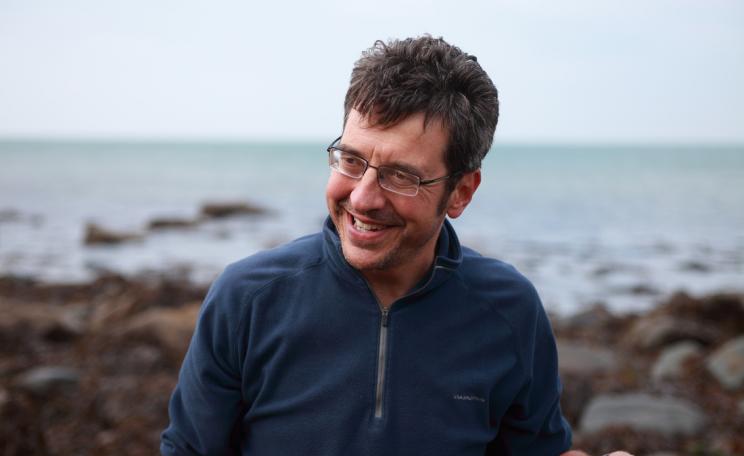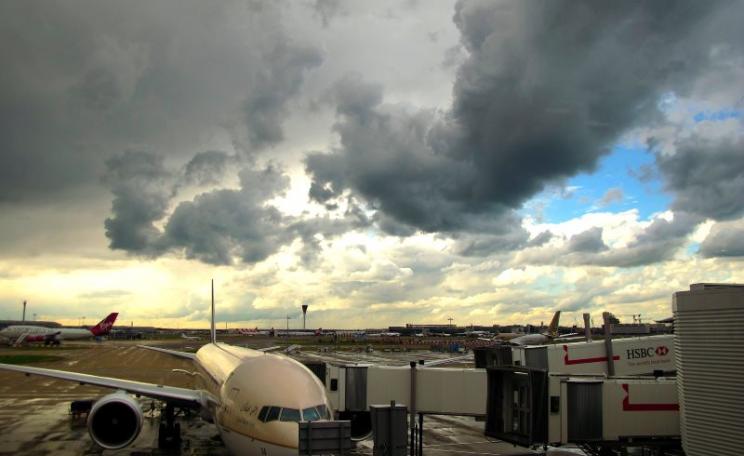The virus has shown that we are capable of a level of change that a lot of us have assumed is impossible because we have always lived a certain way but we’ve just shown that of course you can do it.
Pointless, wasteful activities have pushed us to the edge of a global climate crisis but Coronavirus has proved we have the ability to step back from the edge, says one of Britain’s leading sustainability thinkers.
Professor Mike Berners-Lee - a leading authority on calculating carbon footprints - says he feels more hopeful that we can effectively tackle climate change than he has for years.
But he criticised our “incredible capacity” to “completely pointlessly” waste natural resources on activities such as space tourism and cryptocurrency mining which are responsible for huge amounts of additional CO2 entering our atmosphere.
Hope
In an interview with Steven Day, co-founder of 100 percent renewable energy supplier Pure Planet, Professor Berners-Lee said: “Some things give me more hope than I've had for years, but we are so heading for trouble now in a short time frame – I can’t tell you exactly how it’s going to pan out and what year – but it’s not far off now so we really need this change right now.
“The virus has shown that we are capable of a level of change that a lot of us have assumed is impossible because we have always lived a certain way but we’ve just shown that of course you can do it.
“For me, the optimism started growing before this virus hit because of kids taking to the streets and joining protests like Extinction Rebellion. I was noticing a change of attitude in the business community too. It was beginning to feel like this intractable system was beginning to show some cracks.
“And then the virus happened. It was a distraction but has proven that change is possible. We can choose how we live and it can be different. So, it’s an interesting moment and there’s everything to play for. I really hope we come out of lockdown in a better way and everything about the recovery needs to go through our deep green lens now.”
One desperately needed change, he says, is for politicians on all sides to be truthful with the public about the severity of the threat from climate change.
The virus has shown that we are capable of a level of change that a lot of us have assumed is impossible because we have always lived a certain way but we’ve just shown that of course you can do it.
Groundbreaking
Berners-Lee added: “The problems we face now are complex. In order to stand a chance, we need the clearest view of what’s going on that we can get. And that means that we need to be able to trust people – especially our politicians. It’s increasingly easy for people who want to pull wool over our eyes either through lying or through misleading us.
“To counter that, we need to absolutely scream against it. Leaders trying to give us an inaccurate understanding of what is going on in the world ought to be enough to have them catapulted out of politics and on their knees begging for forgiveness.”
In September, Berners-Lee will publish an updated version of his groundbreaking green guide How Bad Are Bananas? which quantifies the carbon footprint of everyday items.
He stressed in the decade since the book was first published humanity has found ever more pointless ways to harm the environment.
Computing
He said: “One of the most recent areas I’ve been digging around in is IT. In IT, the carbon footprint has been going up a lot over the past 50 years. It has bought so much into our lives and enabled so many efficiency improvements.
“Within that, one killer aspect within IT is cryptocurrencies which turn out to have an enormous carbon footprint – staggeringly high – machines whirring away day and night, burning through a stack of energy solving these inherently pointless puzzles.
“It's incredible how humans are capable of completely pointlessly burning through a huge amount of energy. Another example would be space tourism which is a pointless human endeavour.
“I write about the five tonne (of CO2) lifestyle – which would be a good step forward for most people in the UK right now, we’re each currently causing around 13 tonnes of carbon emissions a year – and you look at the rate in which you burn that up in space tourism... you are burning through your 5 tonnes in about three seconds or something.”
In addition to teaching at Lancaster University and advising companies on how to improve their sustainability Berners-Lee has published a number of guides to living a low-carbon lifestyle.
Conflicts
Despite this, he emphasises he is not flawless: “Just because I’ve written these books about it I am just an ordinary human being just like everyone else and I don't find it any easier than everyone else and I am not squeaky clean. just like everyone else.
“We live in a very conflicted society, where it’s set up to be unsustainable in almost everything. You can’t walk outdoors, go to the shops, do anything without there being something unsustainable in there.
“So it’s about not letting ourselves off the hook, but it’s also about not beating ourselves up, we are all imperfect like it or not. Something I really want to say is cutting our carbon footprint and sustainability is part of it – a really important part of it – but it’s actually not enough.
“We all need to forgive ourselves otherwise we do nothing.”
This Article
This article is based on a press release from Pure Planet.

